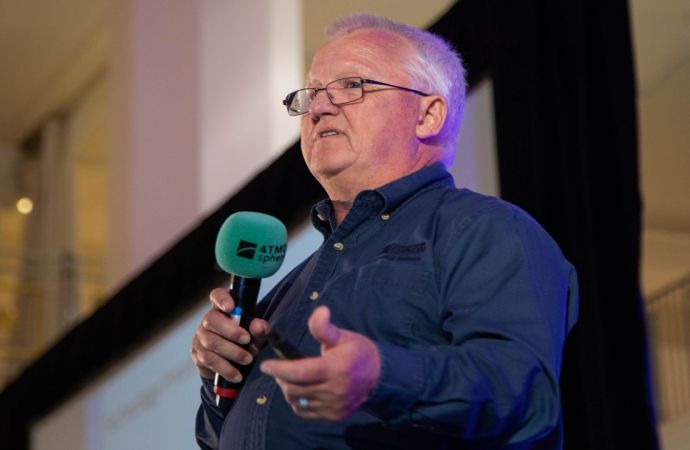Mid-year international climate change talks concluded on 25 May 2012 in Bonn, Germany, with some progress made regarding the extension of the Kyoto Protocol beyond 2012, but slow-moving progress as regards a new global climate treaty post 2020. More constructive were the discussions pertaining to climate change technologies, for example determining who will host the Climate Technology Centre.

The Parties to the United Nation Framework Convention for Climate Change (UNFCCC) met for two weeks in Bonn, Germany with the aim to agree on a work plan that would result in a new global climate treaty, to be drafted by the end of 2015 under the “Durban Platform” negotiating process and to be implemented by 2020.
Parties discuss procedure but no substance for new post 2020 climate pact
Yet, instead of a concrete work plan for the years to come that would enable countries to agree on a post 2020 climate change pact, Parties have merely managed to agree on an agenda on future work. Slow progress did not come as a surprise however, given the difficulty of agreeing to the so-called “Durban Platform” in the first place at last year’s UNFCCC negotiations in December 2011.
Good progress regarding Kyoto Protocol extension beyond 2012, but other major emitters should “play ball”
The extension of the Kyoto Protocol, the world’s only legally-binding treaty on emissions reductions, after 2012 when the first emission reduction commitment period expires and until the new climate treaty comes into force in 2020 was also on the agenda in Bonn as a crucial element.
Here, Parties managed to make significant progress. UN climate chief Christiana Figueres said: “I am pleased to say that the Bonn meeting produced more clarity on the Protocol’s technical and legal details and options to enable a smooth transition between the two commitment periods of the protocol”. “Countries can now press on to ensure elements are in place to adopt the Doha amendment to the Kyoto protocol”, she added. Nonetheless, the effectiveness of a Kyoto Protocol extension is doubtful, with developing countries not participating and some major developed countries recently having dropped out (Canada, Japan), or never having ratified it (US). ''The European Union is almost the only player taking a second commitment period under the Kyoto Protocol and so keeping it alive”, said EU climate chief Connie Hedegaard. “We are willing to do this, even when other major economies are at present only willing to enter into voluntary commitments. But - and it is a big but - we need other major economies and significant emitters to play ball”, she added.
As Bonn talks stall, all G8 countries join international Coalition to fast track HFC alternatives
But although the US has not ratified the Protocol, it has been among the founding countries of the Climate and Clean Air Coalition to Reduce Short-Lived Climate Pollutants including hydrofluorocarbons (HFCs), launched back in February 2012. The Coalition, among other things, aims to fast track more environmentally friendly and cost effective alternatives and technologies to avoid HFC growth.
At the 18-19 May 2012 G8 meeting, held in parallel to the Bonn climate talks, those G8 countries that had not yet joined the Coalition, namely Germany, Italy, France, Russia and the United Kingdom expressed their support for the aims and initiatives of the Coalition via the Camp David Declaration and agreed to join it.
UNEP likely host of centre aimed at enhancing technology cooperation & transfer
More constructive were also discussions pertaining to climate change technologies under the Subsidiary Body for Implementation (SBI) and Subsidiary Body for Scientific and Technological Advice (SBSTA). For example, SBI welcomed a report evaluating proposals for hosting the Climate Technology Centre and Network (CTC) whose mission is “to stimulate technology cooperation and to enhance the development and transfer of technologies and to assist developing country Parties … to build or strengthen their capacity … and enhance low emissions and climate-resilient development”. UNEP was placed first in the ranking of candidates for hosting the centre, the Global Environment Facility (GEF) second, and Norway’s Det Norske Veritas third.
Parties discuss procedure but no substance for new post 2020 climate pact
Yet, instead of a concrete work plan for the years to come that would enable countries to agree on a post 2020 climate change pact, Parties have merely managed to agree on an agenda on future work. Slow progress did not come as a surprise however, given the difficulty of agreeing to the so-called “Durban Platform” in the first place at last year’s UNFCCC negotiations in December 2011.
Good progress regarding Kyoto Protocol extension beyond 2012, but other major emitters should “play ball”
The extension of the Kyoto Protocol, the world’s only legally-binding treaty on emissions reductions, after 2012 when the first emission reduction commitment period expires and until the new climate treaty comes into force in 2020 was also on the agenda in Bonn as a crucial element.
Here, Parties managed to make significant progress. UN climate chief Christiana Figueres said: “I am pleased to say that the Bonn meeting produced more clarity on the Protocol’s technical and legal details and options to enable a smooth transition between the two commitment periods of the protocol”. “Countries can now press on to ensure elements are in place to adopt the Doha amendment to the Kyoto protocol”, she added. Nonetheless, the effectiveness of a Kyoto Protocol extension is doubtful, with developing countries not participating and some major developed countries recently having dropped out (Canada, Japan), or never having ratified it (US). ''The European Union is almost the only player taking a second commitment period under the Kyoto Protocol and so keeping it alive”, said EU climate chief Connie Hedegaard. “We are willing to do this, even when other major economies are at present only willing to enter into voluntary commitments. But - and it is a big but - we need other major economies and significant emitters to play ball”, she added.
As Bonn talks stall, all G8 countries join international Coalition to fast track HFC alternatives
But although the US has not ratified the Protocol, it has been among the founding countries of the Climate and Clean Air Coalition to Reduce Short-Lived Climate Pollutants including hydrofluorocarbons (HFCs), launched back in February 2012. The Coalition, among other things, aims to fast track more environmentally friendly and cost effective alternatives and technologies to avoid HFC growth.
At the 18-19 May 2012 G8 meeting, held in parallel to the Bonn climate talks, those G8 countries that had not yet joined the Coalition, namely Germany, Italy, France, Russia and the United Kingdom expressed their support for the aims and initiatives of the Coalition via the Camp David Declaration and agreed to join it.
UNEP likely host of centre aimed at enhancing technology cooperation & transfer
More constructive were also discussions pertaining to climate change technologies under the Subsidiary Body for Implementation (SBI) and Subsidiary Body for Scientific and Technological Advice (SBSTA). For example, SBI welcomed a report evaluating proposals for hosting the Climate Technology Centre and Network (CTC) whose mission is “to stimulate technology cooperation and to enhance the development and transfer of technologies and to assist developing country Parties … to build or strengthen their capacity … and enhance low emissions and climate-resilient development”. UNEP was placed first in the ranking of candidates for hosting the centre, the Global Environment Facility (GEF) second, and Norway’s Det Norske Veritas third.
MORE INFORMATION
Related stories







_1522327086.png)
